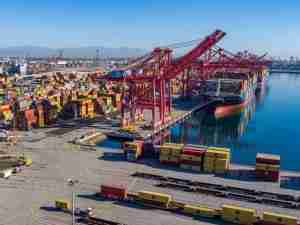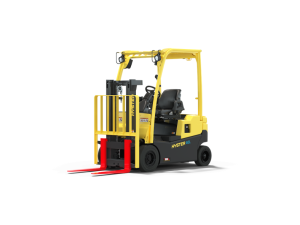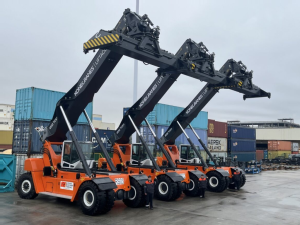February 23, 2017 The Honorable Elaine Chao, Secretary U.S. Department of Transportation 1200 New Jersey Ave SE Washington, DC 20590 Dear Secretary Chao: On behalf of US agriculture, forest products and commodities exporters, we bring your attention to the threatened shut down of the Atlantic and Gulf coasts ports, as announced by the International Longshoreman’s Association. The impact of such an action would be devastating to one of the most important sectors of the US economy. We ask that you bring your experience and office to bear to prevent such a shutdown, and to protect the export economy from injury that in some cases will be irreversible. The Agriculture Transportation Coalition (AgTC) represents the interests of agriculture, forest products and commodities exporters nationwide. We have been identified by a leading transportation and logistics publication as "the principal voice of agricultural exporters in US transportation policy." The AgTC's membership includes companies that represent virtually all containerized and many bulk products exported from the United States. These products are grown, raised, processed, packaged, manufactured and shipped from all regions of the U.S., to all markets worldwide. Our AgTC-USDA Workshops conducted in Atlanta, Kansas City, Memphis, Waco, Minneapolis, Tacoma, Fresno, Sacramento and Boise, reflecting the geographic diversity of the origins of our exports, including a high volume shipped through the East and Gulf ports. This is the basis for our alarm concerning the threatened shutdowns: our exports constantly face the challenge of foreign competition. In fact, the motivating factor for the establishment of the AgTC 28 years ago was this: there is nothing that we export in agriculture, forest products and many commodities, that cannot be sourced somewhere else in the world. If we do not deliver efficiently, affordably and dependably, our foreign customers have demonstrated that they can and will find another source in another country. We have learned this lesson during the two shutdowns of US West Coast ports during longshore labor contract disputes in 2002 and 2014-2015. In some cases, the foreign customers have nurtured new sources elsewhere, and they have been lost to the US exporter – permanently. Currently, much of our export sector faces domestic and international challenges: truck weight limits that are the lowest in the developed world, leading to trucking inefficiency and competitive disadvantage for our exporters; the high value of the dollar; uncertainty in the face of dramatic consolidation of ocean carriers (from 18 to 11 in just a few months); introduction of much larger ships exacerbating congestion at marine terminals, many of which are already not as productive as most of our foreign competitors; chassis unavailability, to name a few. To add to this list another shutdown of our ports, would again undermine our reputation as dependable suppliers. Unlike apparel, footwear, and electronics with particular brands and sources demanded by consumers, the cows in Japan don’t care where their forage comes from, the Chinese mills can use any cotton from multiple countries, consumers of T-shirts and jeans don’t generally know where the cotton was grown, diners in restaurants around the world may not know where the soybeans in their tofu, or the pork, beef, French fries, chicken on their plates, come from. Wood for construction can be sourced in many countries. So there is no reason for manufacturers, restaurants, grocery chains, home builders, and others overseas to tolerate delay or shortages due to disruption at US ports. Unfortunately, we have ample and recent experience as to the impact of the shutdown of operations of marine terminals – in 2002, 2014-2015 and sporadic disruption in between. For every day a terminal is shut down, it takes at least 6 days to recover, in many cases longer. Closing a terminal even for a short period, a couple days, or even one day, or even half a day, has a devastating ripple effect throughout the entire supply chain. The impact reaches far inland, as cargo cannot be loaded on rail or trucks a thousand miles inland to begin the journey to the coasts. Warehouses and cold storage facilities, inland and by the ports, cannot move products out to the ships, and thus cannot accept newly arriving products. The ships cannot call on the ports, and must move on to the next port, leaving cargo stranded. Some products can wait for the congestion to clear, but other products, such as fresh products cannot, leading to millions of dollars of losses. We are very glad that an individual of your experience and familiarity with the international ocean supply chain now serves as our Secretary of Transportation. In your prior capacity at the Department of Transportation, Maritime Administration, Federal Maritime Commission, US Department of Labor, and your involvement in restoring operations at West Coast ports in 2002, we know you can serve the US export sector’s needs well at a time when port operations are at risk. We are offering the expertise of several thousand exporters, large and small, from all regions of the US, to assist you in maintaining the flow of exports during and after this threatened crisis. Sincerely, Peter Friedmann Executive Director AgTC Agriculture Transportation
AgTC pens letter to Secretary Chao regarding ILA threats
posted by AJOT | Feb 24 2017 at 08:19 AM | Ports & Terminals










